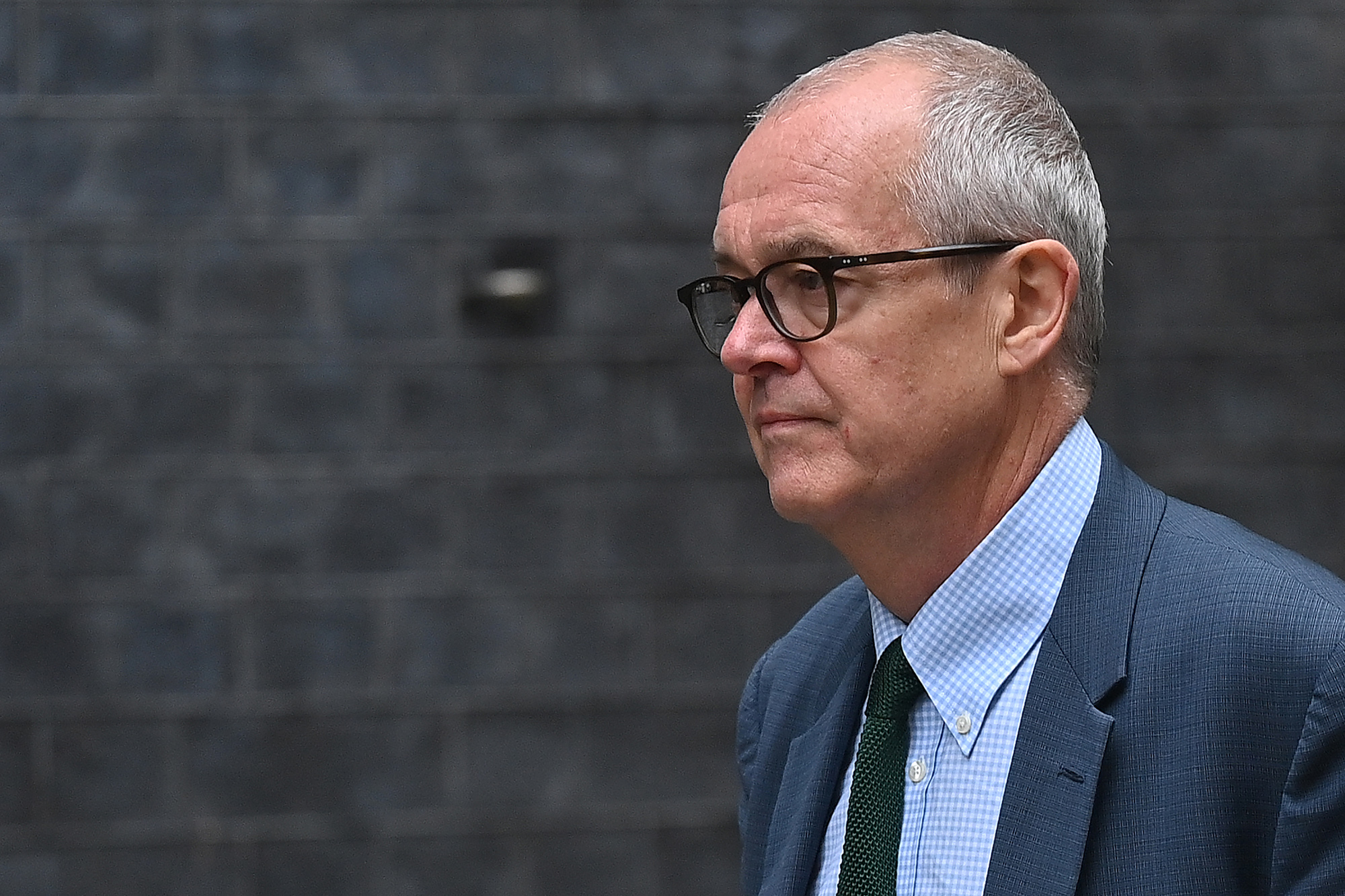I thought it would be tumultuous. I thought it would be unpredictable and I thought it would be fun.
And in truth it has been all three.
But what I never imagined when I agreed to cover the Trump presidency for a year, was how intense and all-consuming it would be.
Everything here is now seen through the prism of a president the like of which this country has never before encountered in the modern era. Everything comes back to him.
He defines it, he dominates it and he divides it. He inspires deep loyalty every bit as much as he provokes profound loathing.
In short, for better or for worse, Donald Trump is America.
His mandate was change. And change he is delivering. He is changing a lot quietly, largely with de-regulation, particularly on the environment and business red-tape.
But mainly he is changing the way presidents do politics and diplomacy. He is the champion of the grand gesture, the great flourish and the made-for-TV spectacular.
A big hit and move on…
His tax cuts were "the biggest ever"; his summit with Kim Jong-Un was "history-making"; his encounter with Putin was "a truly great meeting"; his deal with NATO was "fantastic for America and the world"; the agreement he tore up with Iran was the "worst deal ever", and on it goes.
The success or otherwise of much of it remains to be seen and there is some premature celebration, noticeably on North Korea where the evidence is that the Kim regime is being as disingenuous and duplicitous as its predecessors.
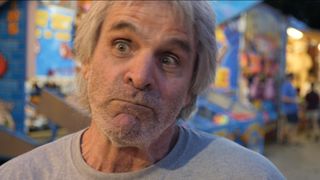 1:17
1:17But where Mr Trump can legitimately claim results is on the economy – and that is important. The growth is impressive, unemployment is coming down and wages are creeping up, albeit slowly.
His supporters will also like the changes he is bringing to the Supreme Court – long lasting changes which will ensure a conservative bias for decades to come. Mr Trump's impact is real.
And another thing that's changed is Mr Trump himself.
When I arrived, I got the clear impression of a president, largely unskilled in running a government and who seemed aware that he was in over his head.
Then around the turn of the year he suddenly became more confident, more emboldened and more empowered.
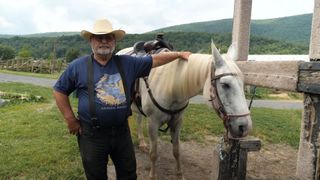 1:04
1:04It was a very important moment for a presidency that could perhaps have disintegrated in a colossal shambles of his own making. That it is hasn't was down to Mr Trump's new self-belief in the White House.
And yet with this presidency there is also a sense that everything changes and everything stays the same.
What do I mean by that? Well, everyday brings another rant, another policy switch, another stream of consciousness or another unpredictable foray into foreign policy.
The Trump train moves at an astonishing speed, with his own officials struggling to keep up.
It is unrelenting, overwhelming and frankly, exhausting. It is the journalistic equivalent of trying to drink from a fire hose.
And yet, when the dust settles and the noise abates, nothing much has changed.
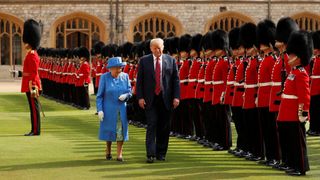 2:58
2:58When I arrived in September 2017, he was obsessed with the special counsel Robert Mueller's investigation into Russian meddling, he was berating the country's immigration laws and promising to build the wall and he was raging against the media – "the fake, fake, disgusting news".
As I prepare to leave in August 2018, he still verbally assaults Mueller on a daily basis, still fulminates against immigration loopholes and still attacks the media, only now with more menacing language.
The mainstream television channels and newspapers have become the "enemy of the people".
What has become perfectly clear is that Mr Trump is a president who thrives on conflict: conflict within his own team (the high turnover of staff is testimony to that); conflict with the media; conflict with the Department of Justice and the FBI; conflict with Robert Mueller, NATO, the EU, Mexico and Iran.
It is a presidency marked by conflict.
But it somehow works for Donald Trump, maybe because his core support wants to see him beating up the people and the institutions they see as responsible for their plight and their struggles .
But you can't sit in Elitesville, USA and gauge where Mr Trump is as midterm elections loom. You need to go to Trumpsville. You need to go to the Mid West to understand why the president won, why he still has strong support and why he has every chance of winning again.
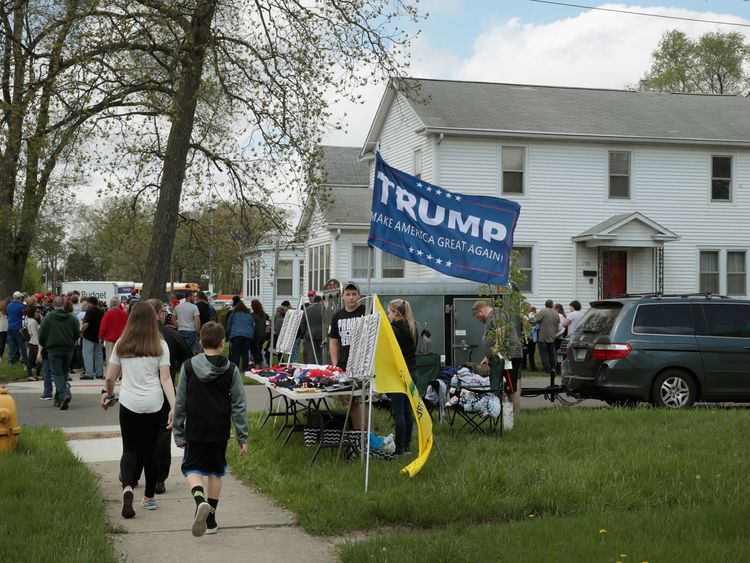
It is a region of small towns and rural attitudes where communities have suffered the devastating effects of de-industrialisation.
They are communities where factories have closed and jobs have been shipped overseas.
And they are populated by voters who were particularly receptive to the Trump message focused on jobs, immigration and unfair trade agreements – a message delivered with an accompanying broadside against the political classes and the establishment.
Among the loyalists, support remains strong. But it is not unqualified.
There is an unease with the president's style. His tweeting offends almost everyone, not primarily because of the content; but rather because it is seen as unpresidential and hints at a volatile president, unable to control his impulses and who seems to announce policy almost on a whim.
They also find the chaos, the dysfunction and the behaviour unsettling.
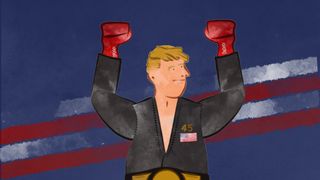 12:22
12:22But, and here's the thing, a bit like evangelical Christians (who are prepared by and large to overlook their moral objections to Donald Trump if it means a pro-life agenda and a conservative supreme court), those loyalists have entered a contract they are prepared to put up with for now.
As long as they see the policies they want, they will tolerate the other stuff. It really is that simple.
In the end, the future of Donald Trump probably will not be decided by Robert Mueller's investigation. It will come and go and is more likely to embarrass than unseat the president.
More from Donald Trump
No, it will, I think, be determined by two factors.
The economy and the Democrat candidate for the 2020 presidential election. If the first is strong and the second is weak in 2020, then eight years of Donald J Trump is a distinct possibility.
I thought it would be tumultuous. I thought it would be unpredictable and I thought it would be fun.
And in truth it has been all three.
But what I never imagined when I agreed to cover the Trump presidency for a year, was how intense and all-consuming it would be.
Everything here is now seen through the prism of a president the like of which this country has never before encountered in the modern era. Everything comes back to him.
He defines it, he dominates it and he divides it. He inspires deep loyalty every bit as much as he provokes profound loathing.
In short, for better or for worse, Donald Trump is America.
His mandate was change. And change he is delivering. He is changing a lot quietly, largely with de-regulation, particularly on the environment and business red-tape.
But mainly he is changing the way presidents do politics and diplomacy. He is the champion of the grand gesture, the great flourish and the made-for-TV spectacular.
A big hit and move on…
His tax cuts were "the biggest ever"; his summit with Kim Jong-Un was "history-making"; his encounter with Putin was "a truly great meeting"; his deal with NATO was "fantastic for America and the world"; the agreement he tore up with Iran was the "worst deal ever", and on it goes.
The success or otherwise of much of it remains to be seen and there is some premature celebration, noticeably on North Korea where the evidence is that the Kim regime is being as disingenuous and duplicitous as its predecessors.
 1:17
1:17But where Mr Trump can legitimately claim results is on the economy – and that is important. The growth is impressive, unemployment is coming down and wages are creeping up, albeit slowly.
His supporters will also like the changes he is bringing to the Supreme Court – long lasting changes which will ensure a conservative bias for decades to come. Mr Trump's impact is real.
And another thing that's changed is Mr Trump himself.
When I arrived, I got the clear impression of a president, largely unskilled in running a government and who seemed aware that he was in over his head.
Then around the turn of the year he suddenly became more confident, more emboldened and more empowered.
 1:04
1:04It was a very important moment for a presidency that could perhaps have disintegrated in a colossal shambles of his own making. That it is hasn't was down to Mr Trump's new self-belief in the White House.
And yet with this presidency there is also a sense that everything changes and everything stays the same.
What do I mean by that? Well, everyday brings another rant, another policy switch, another stream of consciousness or another unpredictable foray into foreign policy.
The Trump train moves at an astonishing speed, with his own officials struggling to keep up.
It is unrelenting, overwhelming and frankly, exhausting. It is the journalistic equivalent of trying to drink from a fire hose.
And yet, when the dust settles and the noise abates, nothing much has changed.
 2:58
2:58When I arrived in September 2017, he was obsessed with the special counsel Robert Mueller's investigation into Russian meddling, he was berating the country's immigration laws and promising to build the wall and he was raging against the media – "the fake, fake, disgusting news".
As I prepare to leave in August 2018, he still verbally assaults Mueller on a daily basis, still fulminates against immigration loopholes and still attacks the media, only now with more menacing language.
The mainstream television channels and newspapers have become the "enemy of the people".
What has become perfectly clear is that Mr Trump is a president who thrives on conflict: conflict within his own team (the high turnover of staff is testimony to that); conflict with the media; conflict with the Department of Justice and the FBI; conflict with Robert Mueller, NATO, the EU, Mexico and Iran.
It is a presidency marked by conflict.
But it somehow works for Donald Trump, maybe because his core support wants to see him beating up the people and the institutions they see as responsible for their plight and their struggles .
But you can't sit in Elitesville, USA and gauge where Mr Trump is as midterm elections loom. You need to go to Trumpsville. You need to go to the Mid West to understand why the president won, why he still has strong support and why he has every chance of winning again.

It is a region of small towns and rural attitudes where communities have suffered the devastating effects of de-industrialisation.
They are communities where factories have closed and jobs have been shipped overseas.
And they are populated by voters who were particularly receptive to the Trump message focused on jobs, immigration and unfair trade agreements – a message delivered with an accompanying broadside against the political classes and the establishment.
Among the loyalists, support remains strong. But it is not unqualified.
There is an unease with the president's style. His tweeting offends almost everyone, not primarily because of the content; but rather because it is seen as unpresidential and hints at a volatile president, unable to control his impulses and who seems to announce policy almost on a whim.
They also find the chaos, the dysfunction and the behaviour unsettling.
 12:22
12:22But, and here's the thing, a bit like evangelical Christians (who are prepared by and large to overlook their moral objections to Donald Trump if it means a pro-life agenda and a conservative supreme court), those loyalists have entered a contract they are prepared to put up with for now.
As long as they see the policies they want, they will tolerate the other stuff. It really is that simple.
In the end, the future of Donald Trump probably will not be decided by Robert Mueller's investigation. It will come and go and is more likely to embarrass than unseat the president.
More from Donald Trump
No, it will, I think, be determined by two factors.
The economy and the Democrat candidate for the 2020 presidential election. If the first is strong and the second is weak in 2020, then eight years of Donald J Trump is a distinct possibility.







